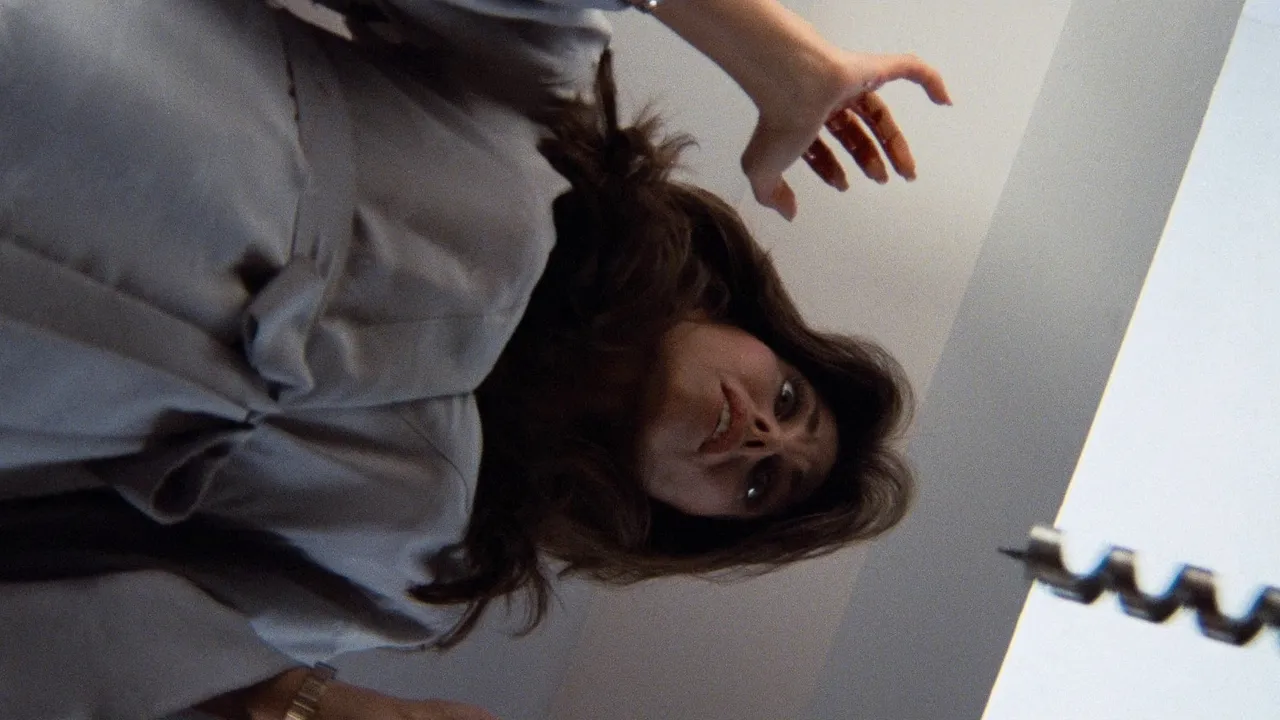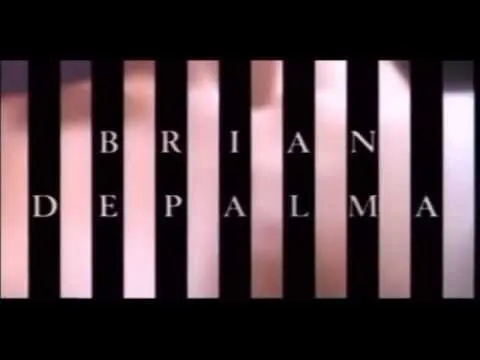
One of the more unholy alliances in the history of American politics was forged in 1980s when radical feminists from the extreme left found common ground with religious fundamentalists from the extreme right. Both camps wanted to purge American screens of what they considered to be filth - mainly pornography, but also mainstream films which were viewed as too smutty and/or degrading to women. One of the most famous targets of that campaign was director Brian De Palma, especially after 1984 erotic thriller Body Double, his most controversial film.
Protagonist, played by Craig Wasson, is Jake Scully, struggling actor in Los Angeles whose career in cheap horror films is seriously jeopardies by his struggles with claustrophobia. One day he returns home from the set and finds his girlfriend (played by Barbara Compton) with another man. Since she owns the house, he is forced to seek new accommodation. Thankfully, Sam Bouchard (played by Gregg Henry), fellow actor whom he met and befriended during auditions, offers temporary solution in a form of luxurious home he house sits for a rich friend. Since Sam received a gig in Seattle, Jake is about to replace him and enjoy many unusual perks. His favourite is the telescope which he uses to observe neighbouring house in which mysterious comely brunette each night performs sexually explicit show. Jake not only enjoys the view, but quickly becomes obsessed with a woman (played by Deborah Shelton) and starts following her when he discovers that her life might be in danger. His efforts, however, further complicate matters when he inadvertently gets involved in murder and later has to enter seedy underbelly of Los Angeles porn industry in order to solve the mystery and clear his name.
De Palma had already had problems with some critics accusing him of too much graphic and exploitative violence and alleged promotion of misogyny in his film. Some of those complaints actually don’t carry much water, at least in terms of violence. Even the infamous murder scene featuring power drill looks rather tame compared with much more graphic content that audience can see at HBO and Netflix today. Body Double more likely earned his share of controversies through graphic display of sexuality, especially those of less conventional kind. De Palma had only himself to blame for that. He originally wanted to make first major X-rated film featuring non-simulated sex scenes, but the executives at Columbia Pictures would have none of it. De Palma obviously miscalculated, apparently unaware that America under Reagan, and consequently Hollywood, took serious rightward turn towards conservative values. In the end De Palma was forced to tone down such content, but even in such censored form film was deemed “pornographic” and “sleazy” but increasingly hostile chorus of critics. Prospects of Body Double were further damaged by portrayal of porn industry, which was shown to be not that different from Hollywood, and the portrayal of bleak and depressive realities of Hollywood actors forcing to make ends meet through humiliating jobs apparently hit too close to home for many powerful Hollywood producers and studio executives, creating serious impediment for continuation of De Palma’s career.
Seen without the context of 1980s culture wars, Body Double is actually a very good thriller. This isn’t surprising because De Palma at the time enjoyed the reputation as one of the masters of genre, most notably as “Hitchcock after Hitchcock”. Like in some earlier films, he pays homage to Maser of Suspense and especially to his 1950s classics like Rear Window and Vertigo. Body Double borrows a lot from those two films, including protagonist beset by frustrated sexuality, voyeurism and various phobias. De Palma, using laxer censorship standards of his time, is much more explicit than Hitchock and portrays protagonist as actual pervert. Yet, through brilliant casting of plain-looking Craig Wasson he maintains Hitchcockian principle of “ordinary man in extraordinary situation”. Wasson through his skill makes audience forget about his flaws that are minor compared to manipulative and ruthless murderer he is about to face. Casting of Deborah Shelton, former Miss USA, was obviously based more on her looks than acting talent (and her character had voice dubbed by Canadian actress Helen Shaver), but she is more than adequate in relatively few scenes she appears. Melanie Griffith is even more impressive in the role of porn actress Holly Body, despite her character appearing only in the second part of the film. Although some in the male audience might be more impressed with her willingness to disrobe for the sake of the role, she very convincingly plays character with enough street smarts to elevate her over airhead cliches. She also provides a little bit of humour which seems necessary for this otherwise dark and gritty story. This risky and potentially thankless role, despite Body Double failing at the box-office, proved to be successful springboard for the rest of her career.
The crucial aspect of Body Double is, however, De Palma’s direction. He again employs baroque style with many long, elaborate scenes, many of which use interesting Los Angeles locations (including famous Chemosphere House) and are elevated by the another memorable musical score by Pino Donaggio. De Palma always brought more emphasis on style over substance and some might be tempted to see this film as another example of bombastic scenes hiding certain inadequacies in the script. The plot is indeed somewhat complicated and it takes some time for audience to realise what would actually happen, but viewers will mostly be pleased. De Palma even indulges himself with another dream/vision scene (and the one featuring Frankie Goes to Hollywood playing its 1984 megahut “Relax” can be seen as another), but this works in the film where the most important elements of the plot are deception and illusion. The second motive can be seen from the beginning, which takes place in obviously fake setting of studio, then in scene featuring domestic bliss which is to be shattered by infidelity, by characters who aren’t what they seem and finally with character of Jake having to use his acting skills in order to solve the mystery. Even the title is inspired by simple trick De Palma has used in the opening scene of Dressed to Kill, and which is depicted in this film’s end credits. In the end, Body Double isn’t that different from De Palma’s other Hitchcockian films but in the end it proved to be his last. De Palma has apparently learned his lesson and decided not to rock the boats any longer and instead to continue his career as loyal part of Hollywood mainstream, using his enormous talent in usually soulless blockbusters. This spared De Palma from further controversies, but his loyal audience was at a loss.
RATING: 8/10 (+++)
Blog in Croatian https://draxblog.com
Blog in English https://draxreview.wordpress.com/
Leofinance blog @drax.leo
Cent profile https://beta.cent.co/@drax
Minds profile https://www.minds.com/drax_rp_nc
Uptrennd profile https://www.uptrennd.com/user/MTYzNA
Hiveonboard: https://hiveonboard.com?ref=drax
Rising Star game: https://www.risingstargame.com?referrer=drax
1Inch: https://1inch.exchange/#/r/0x83823d8CCB74F828148258BB4457642124b1328e
BTC donations: 1EWxiMiP6iiG9rger3NuUSd6HByaxQWafG
ETH donations: 0xB305F144323b99e6f8b1d66f5D7DE78B498C32A7


